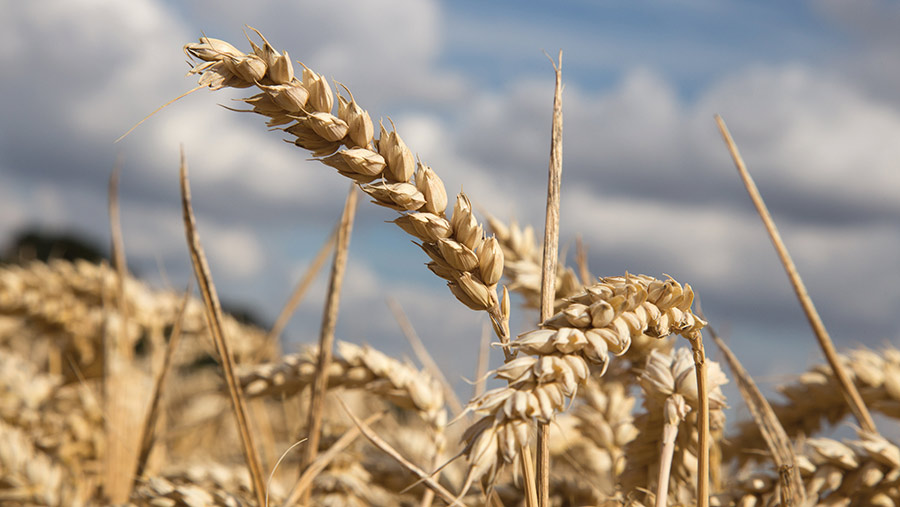New regenerative wheat standard offers farmers £20/t premium
 © Tim Scrivener
© Tim Scrivener A new wheat standard that aims to encourage regenerative farming practices and cut chemical use is offering a £20/t premium for compliant farmers.
Established by the Green Farm Collective in collaboration with Food Integrity Assurance (FIA), the new standard involves the reduced use of synthetic crop protection products, caps on nitrogen and mandatory crop rotations.
Farmers must follow a set of criteria such as using strip-till or zero-till, and apply no more than 180kg nitrogen/ha.
A maximum of two fungicide applications with just one spray of plant growth regulator is permitted. Insecticides and pre-harvest glyphosate are not allowed.
See also: Crop nutrition focus saves farmer over £43,000 on costs
Cut chemical use
Michael Kavanagh, co-founder and director of the Green Farm Collective, explains the aim of the standard is to cut chemical use, enhance soil health and produce more high-quality, nutritious food.
“By developing standards with the FIA and engaging with millers and end-users, we aim to shift farming towards methods that rely less on synthetic inputs and more on enhancing soil health and biodiversity.”
The standards
The full list of criteria for farmers to meet the Green Farm Collective regenerative wheat standards are listed below:
- Use of strip-till or zero-till practices
- Maximum of 180kg N/ha
- Maximum of 45kg N/ha per dose
- Crop rotation with a minimum of six crops in the rotation, including cover crops/catch crops
- No pre-harvest glyphosate use
- Limited and justified use of synthetic inputs
- Maximum of two fungicide applications and one plant growth regulator
- No insecticides
- 11.5% minimum protein content, with flexibility to accept down to 11%.
Growers who meet the criteria will receive a £20/t premium and could benefit from additional revenues from carbon credits and biodiversity improvements.
The collective is encouraging farmers to join the initiative as demand for sustainably farmed wheat is expected to grow.
Improved nutrition
The collective is also working to develop standards and markets for other crops, such as oats and feed wheat, to support regenerative agriculture.
“Our approach supports the environment and offers a premium to farmers who adopt these practices, ensuring a sustainable and profitable future for the farming community,” says Michael.
“Everything comes from our soil, and the goal of the Green Farm Collective standards is to encourage farmers and the market to continue along this journey of improving soils.
“Research has found the nutritional value of food can vary depending on the soil quality. By improving soil health through regenerative practices, the food grown in our soils will be more nutritious,” he says.
Certification process
The certification process through the FIA will provide transparency and authenticity to buyers, involving audits and self-reporting.
Stephen Sanderson from the FIA explains the organisation is there to support and work alongside growers to maximise premium opportunities in the marketplace.
“On auditing the Green Farm Collective standards, we would take a cautious approach that wouldn’t be onerous for members to engage with.”
Audits will have “a meaningful conversation”, says Stephen, focusing on continuous improvement rather than fault-finding.
The Green Farm Collective encourages interested farmers to contact them about supplying wheat grown to the new standards, as demand is expected to increase significantly.
For more information, farmers can reach out to Green Farm Collective at hello@greenfarmcollective.com.
Still time to enter £10,000 Green Innovation Award
There’s still time to enter the Green Innovation Award, which offers £10,000 to a farm innovation that improves agricultural sustainability and biodiversity.
Successful entries for the award, launched by the Green Farm Collective, could help solve problems or deliver environmental, financial or industry benefits.
For more information and to complete the entry form, visit the Green Farm Collective website.

